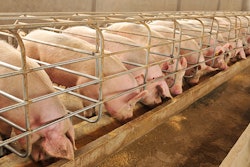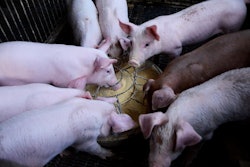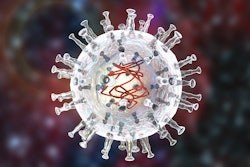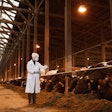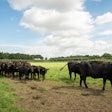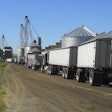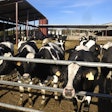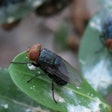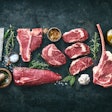
United Kingdom-based animal feed company Robin Rainey & Sons Ltd. pleaded guilty to a single charge of breaching animal feeding regulations, and was fined GBP350 (US$472), plus an offender levy of GBP15.
According to the Northern Ireland agriculture department, DAERA, the case was brought to its attention after traces of bone and muscle fibers were detected in a sample of calf meal produced by the company.
This finding indicates the presence of animal byproducts in the feed.
Under European Union (EU) Regulation No.999/2001, the Transmissible Spongiform Encephalopathies Regulations (Northern Ireland) 2018, and the amended Animal By-Products (Enforcement) Regulations 2015, the feeding of all animal proteins to ruminants is banned. As a consequence, businesses in the agrifood sector are required to take reasonable and practical measures to ensure that diets for cattle, sheep and other livestock in this group are free of contamination of the prohibited materials.
The first regulation in this field was introduced in the United Kingdom (U.K.) in 1988. Since 1994, the use of meat or bone protein from any mammal has been banned in ruminant feeds. Two years later, it became illegal to feed any farmed animals with mammalian meat and bone meal (MBM). These restrictions remain in effect.
Caused by prions, transmissible spongiform encephalopathies (TSEs) have been linked to a range of neurological diseases, which may lead to death. Conditions include bovine spongiform encephalopathy (BSE) in cattle, scrapie in sheep and goats, and Creutzfeldt-Jakob disease (CJD) and Kuru in humans.
Based in Randalstown in County Antrim, Robin Rainey & Sons has eight employees, according to the latest filing with Companies House, the U.K. government’s official business register.
BSE risk in UK downgraded
This month, the U.K. government agriculture department, Defra announced that the country’s BSE risk had been officially lowered to “negligible.”
The decision — by the World Organisation for Animal Health (WOAH) — recognizes the improved status of the nation’s beef products, and offers greater opportunities for exports of these products.
Furthermore, Defra reports, the move will allow changes to control measures for slaughterhouses and meat processing businesses in the U.K. As well as reducing operational burdens, the downgrading of the BSE risk leads to potential financial savings for the sector.
In the 1980s, BSE — or “mad cow disease” — raised significant public health concerns in the U.K., and resulted in long-term bans on the export of British beef.
Commenting on the WOAH decision, Farming Minister Daniel Zeichner highlighted that it represents a boost for the nation’s cattle farmers.
“It is also a huge vote of confidence in this government’s commitment to rigorous animal health standards and biosecurity,” he said.
“This milestone is of significant value to the industry,” said Nan jones of the British Meat Processors Association. “To illustrate, the ability to recover mesenteric fat alone could generate value of approximately GBP10 million per year. Given the substantial benefits this change brings to our members, we hope that the improving U.K.-EU relationship offers an opportunity to seek earlier EU recognition of our status.”
After a similar move in Scotland in 2024, the English and Welsh administrations opened a public consultation this year on the possible future inclusion of processed animal protein (PAP) in feeds for poultry and pigs.
The consultation closed on April 1, and the responses are under review.


